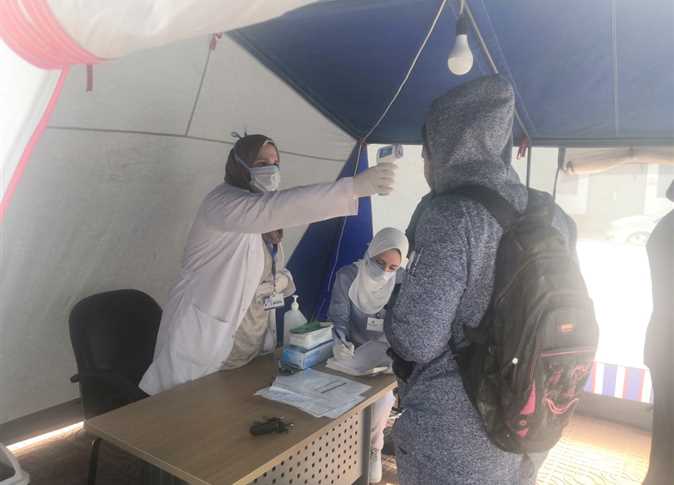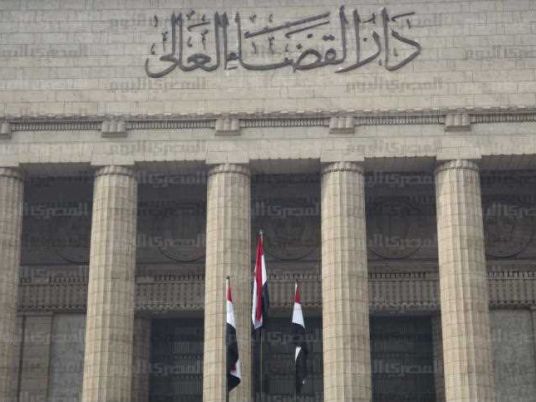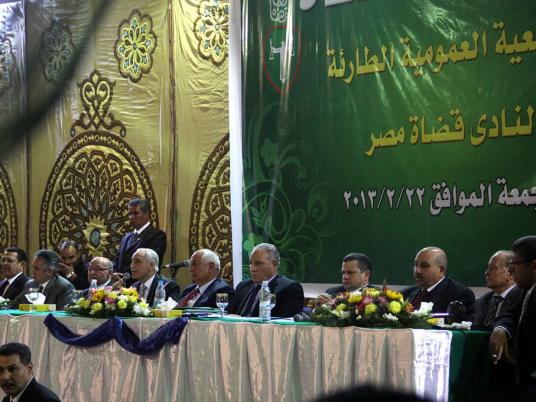Hours before the referendum kicks off in Cairo, concerns are looming about the legality of the process. Unlike other referendums, it is taking place over two rounds staged a week apart, and there is also controversy surrounding the judicial oversight of the voting process.
Legal disagreements on conducting the referendum over two phases started after President Mohamed Morsy issued a law last Wednesday that allows the referendum to be held in multiple rounds of voting. Introduced at the request of the High Elections Commission (HEC), the law was intended to address the shortage of judges willing to participate in the process.
Raafat Fouda, a constitutional law professor at Cairo University, says that the law contains a major flaw. Unlike voters who will cast their ballots in the first phase, voters in the second phase will have more time to read and study the draft constitution, which will affect the principle of equal opportunity among citizens as stipulated in the constitutional declaration, he says.
Furthermore, news of the results after 10 governorates vote in the first round may affect voters in the second round, which includes a larger number of governorates, Fouda says.
The other legal issue is that there are not a sufficient number of judges to supervise the referendum, he continues.
HEC head Samir Aboul Maaty told Al-Masry Al-Youm on Thursday that 7,000 judges would supervise the first round of voting, contradicting a statement made by the commission’s secretary general Zaghloul al-Balshy on Wednesday, when he said between 9,500 and 10,000 judges would supervise the vote. This would include 5,000 judges belong to the courts of first instance, appeal and cassation, Balshy said.
The commission’s conflicting statements illustrate the confusion surround the decision of many judges, especially in the lower courts, to refuse to supervise the referendum, says Judges Club spokesperson Shady Khalifa.
"The commission has published on its website the names of judges who are scheduled to supervise the referendum, but I assure you that among those names are 2,930 judges who decided to boycott the elections' oversight," Khalifa says.
"I expect chaos in front of polling stations where these abstaining judges will not attend. The commission has already started contacting judges to convince them to go to monitor the (referendum), which violates Article 62 of the Judiciary Law. The article prohibits assigning any judge to any task, whether judicial or non-judicial, without the consent of the general assembly of his court," he adds.
"The majority of general assemblies of ordinary courts have refused to supervise the referendum. Some bet that the judges of the State Council and the State Litigation Authority may resolve the crisis after the State Council Judges Club agreed on Thursday to oversee the referendum, after the administration provided guarantees to secure the judges during the electoral process. One of these guarantees is that the Armed Forces and the police would secure polling stations with nearly 38,0000 security personnel," Khalifa says.
Judge Maged Shebaita of the State Council told Egypt Independent that more than 1,000 State Council judges, out of the 2,500 judges who work there, would take part in the process.
The State Litigation Authority Club also agreed on Tuesday to supervise the referendum, saying it was a national duty. The club did not mention the number of judges who would take part in the referendum, out of the nearly 4,500 judges in the club.
Members of the Administrative Prosecution Authority may prove to be an obstacle to the HEC, after their club announced on Wednesday that 2,990 members out of 3,847 do not want to supervise the referendum.
Fifty million voters are registered to participate in the referendum in both phases. The first phase will be on15 December, while the second will be on 22 December. The database of voters has not changed since the presidential elections, conducted in last May and June. Only those who turned 18 years old before 30 November have been added to the rolls, the commission announced.
The first phase of voting includes the governorates of Cairo, Alexandria, Daqahlia, Gharbiya, Sharqiya, Assiut, Sohag, Aswan, North Sinai and South Sinai. The second phase includes Giza, Qalyubiya, Monufiya, Minya, Beheira, Kafr al-Sheikh, Damietta, Ismailia, Port Said, Suez, Matrouh, Red Sea, New Valley, Beni Suef, Fayoum, Luxor, Minya and Qena.
This piece was translated from Arabic by Mai Mohsen



